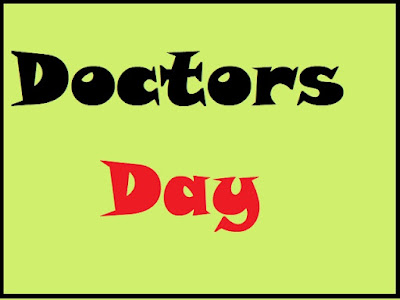Doctor's Day or National Doctors Day is observed in India on July 01 every year is an observance that honors and recognizes the contributions and dedication of physicians and doctors in society. The contribution of doctors and other medical professionals towards our nation-building can't be ignored and that's why we observe the National Doctors Day to create awareness about the important role they play in saving lives and promoting public health.
According to media reports, all across India National Doctors' Day is celebrated on July 1 in memory of Dr. Bidhan Chandra Roy, physician and the second Chief Minister of West Bengal. He was born on July 1, 1882 and died on the same date in 1962.
Dr. B.C. Roy: Biography
Dr. B.C. Roy, the renowned physician, educator, and actively participated in the freedom struggle was born on July 1, 1882, in Patna, Bihar. He aligned himself with Mahatma Gandhi during the Civil Disobedience Movement and subsequently climbed the ranks within the Indian National Congress, ultimately serving as the Chief Minister of West Bengal.
It is an opportunity for people to express their gratitude and appreciation for the important role doctors play in maintaining the health and well-being of individuals and communities. Here's some significance and importance of Doctor's Day:
Recognition of Medical Professionals: Doctor's Day serves as a platform to acknowledge the selfless service, expertise, and sacrifices of doctors who work tirelessly to save lives, alleviate suffering, and promote public health. It is a day to appreciate their knowledge, skills, and dedication to the medical profession.
Raising Public Awareness: Doctor's Day helps raise awareness among the general public about the importance of healthcare and the critical role doctors play in providing medical care, disease prevention, and health education. It serves as a reminder of the significance of regular check-ups, preventive measures, and early detection of diseases.
Motivating Healthcare Professionals: Celebrating Doctor's Day provides a morale boost to healthcare professionals, including doctors, nurses, and medical staff. It recognizes their efforts and motivates them to continue their exceptional work in the face of challenges and demanding situations. It can inspire young doctors and medical students to pursue careers in medicine.
Strengthening Doctor-Patient Relationship: Doctor's Day offers an opportunity for patients to express their gratitude and appreciation to their doctors. It helps strengthen the doctor-patient relationship, fostering trust, communication, and mutual respect. The day encourages patients to recognize and acknowledge the efforts and expertise of their doctors.
Medical Education and Research: Doctor's Day promotes medical education and research by highlighting the importance of continuous learning, professional development, and innovation in the field of medicine. It encourages doctors to stay updated with the latest advancements, share knowledge, and contribute to medical research and publications.
Reflection and Celebration: Doctor's Day allows society to reflect on the contributions made by doctors and the positive impact they have on individual lives and the overall healthcare system. It is a day to celebrate the achievements and successes of doctors and to express gratitude for their commitment to serving others.
Overall, Doctor's Day holds significant importance in recognizing and appreciating the invaluable service provided by doctors. It serves as a reminder to society about the importance of healthcare and the tireless efforts of medical professionals in promoting and preserving human health.


Post a Comment